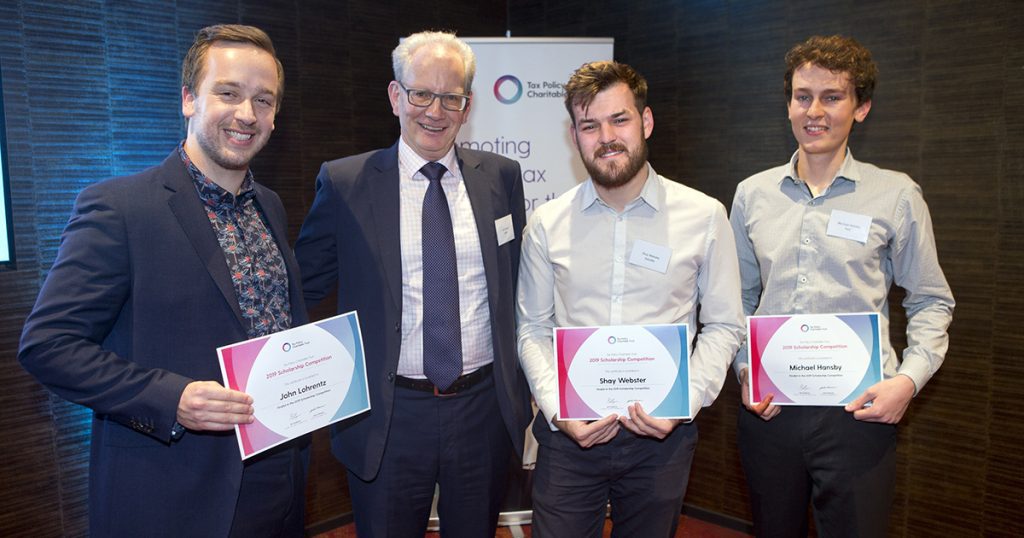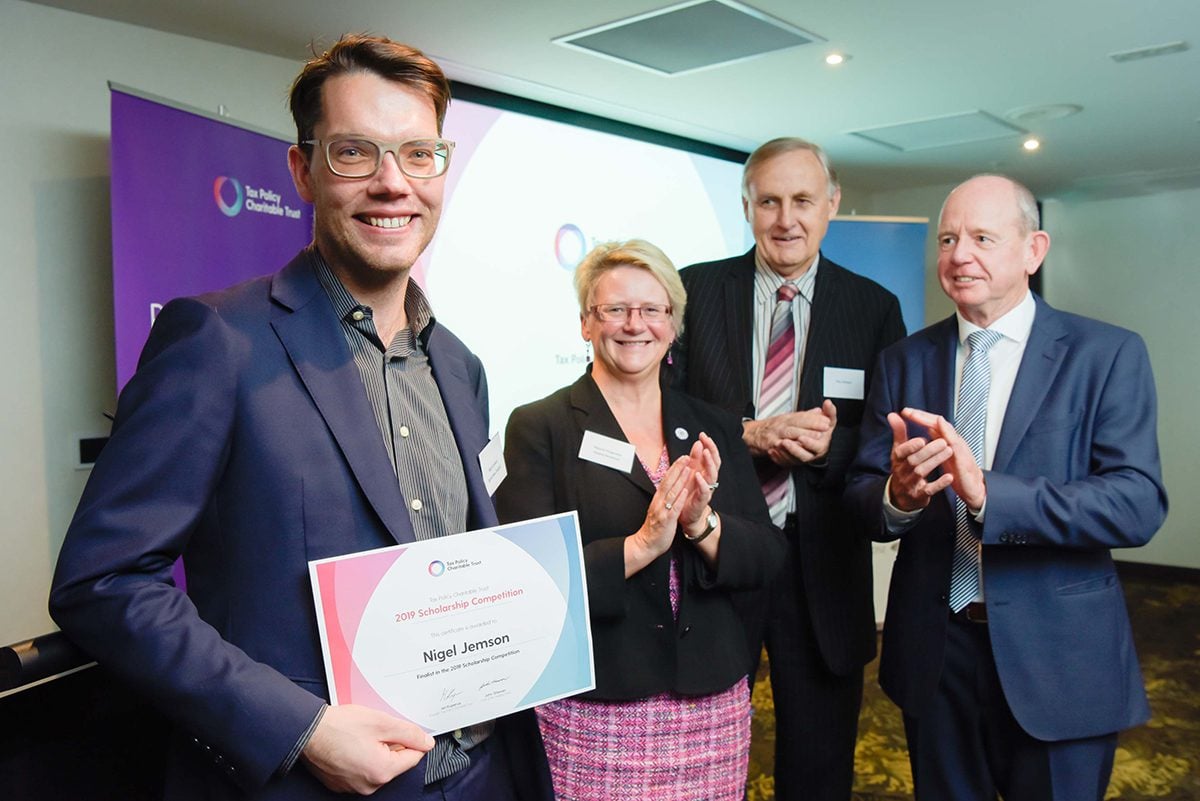Can AIM taxpayers use tax pooling?
A taxpayer cannot use tax pooling to defer payment of, or settle, provisional tax instalments calculated under the accounting income method (AIM).
However, TMNZ can help AIM taxpayers with terminal tax or when they receive a notice of reassessment.
What does tax pooling legislation say about AIM?
Legislation in the Income Tax Act 2007 clearly states that a taxpayer can use tax pooling funds to satisfy “a provisional tax liability other than under the AIM method”.
Please refer to sections RP17-RP21 of the Act for further information.
Why IR doesn’t allow tax pooling to assist with AIM payments?
Inland Revenue (IR) says tax pooling manages taxpayers’ uncertainty around provisional tax payments and their exposure to interest.
Consistent with this objective, tax pooling is not currently available for tax types where someone has certainty of their liability at the time of payment (for example, GST).
Given the payments made under AIM are calculated on actual accounting profit, taxpayers will have certainty about what's due.
As such, it's IR’s view that it's not appropriate to allow tax pooling for provisional tax payments calculated under AIM.
What does that mean for you?
IR will reject the use of any tax pooling funds to satisfy an underpaid AIM instalment. As a result, late payment penalties and interest will continue to show on a taxpayer account.
They will, however, accept the use of tax pooling funds to settle a terminal tax liability. The same applies if an AIM taxpayer has additional tax to pay after receiving a notice of reassessment.
Please be mindful of these facts when entering arrangements with TMNZ.
It’s also an important consideration before electing to use AIM to calculate provisional tax.
That's because paying tax when income is earned is not necessarily the same as when cash is received.
If someone is unable to pay an AIM instalment on time or in full due to cashflow constraints, the safety net of tax pooling will not be available to reduce their exposure to interest and eliminate late payment penalties.
Feel welcome to contact us if you have any questions.
Make IR interest, late payment penalties disappear
A missed or underpaid provisional tax payment often means a taxpayer is faced with a steep interest cost and potentially late payment penalties on top of what they owe.
However, tax pooling can make that go away.
A big frustration with Inland Revenue (IR) is that it expects taxpayers to pay the correct amount of tax on the dates it sets. No ifs, no buts.
Fail to adhere to this rigid timetable or underpay and you will face the consequences.
IR charges interest – 9.89% as at 8 May 2025 – from the date the payment was due until you pay the outstanding amount.
Late payment penalties may also apply as follows:
- One percent the day after payment was due.
- An additional four percent if the tax amount (including late payment penalties) remains unpaid after seven days.
A tax pooling provider such as TMNZ operates with the blessing of IR. It can be of assistance if taxpayers find themselves in this situation.
Where might this be useful?
In the event you missed your recent 7 May provisional tax payment – or any other instalment relating to the 2020-21 income year, for that matter – we can eliminate any late payment penalties for which you may be liable and significantly reduce the interest you pay.
You make your payment to TMNZ and we apply backdated tax that was paid to IR on the original date(s) it was due against your liability.
The taxman treats it as if you paid on time once it processes this transaction.
This wipes any IR interest and late payment penalties showing on your account.
You have the option of making to TMNZ a one-off payment at a date of your choosing or making regular instalment payments towards your liability over a longer period.
TMNZ gives you up to 13 months to pay your 7 May provisional tax for the 2020-21 income year.
Is your 2020 terminal tax overdue?
You still have time to use TMNZ to reduce the interest cost and eliminate late payment penalties if you have outstanding provisional or terminal tax liabilities for the 2019-20 income year.
However, you will have to act quickly.
Tax pooling legislation gives taxpayers an additional 75 days past their terminal tax date to pay their terminal tax.
If your terminal tax for the 2019-20 income year was due on 7 April 2021, you would have until 15 June to settle owe with TMNZ.
Reassessed by IR
TMNZ can also assist with historic income tax payments and other tax types such as GST and PAYE if you receive a notice of reassessment from IR.
You have 60 days from the date the IR issues this notice to use tax pooling.
Please contact us if you have any questions.
IR payment allocation rules explained
Provisional tax payments made on or before the date of the final instalment for the year are applied to the oldest overdue tax amount first while payments made after the date of the final instalment are applied to the interest owing on any overdue tax first, then the overdue tax amount.
The Inland Revenue (IR) payment allocation rules – which are found in s120F and s120L Tax Administration Act 1994 – also apply to payments made via a tax pooling provider such as TMNZ.
It’s important to understand how they work and differ from one another.
Detailed explanation
Section 120L covers provisional tax payments made on or before the date of the final instalment for the year.
It requires IR to apply a payment to unpaid tax in order from oldest to newest. Please note the unpaid tax amount(s) include late payment penalties.
Section 120F deals with payments that are made after the date of the final provisional tax instalment for the year.
It requires IR to apply payments, in the following order, towards:
- The interest accrued on the oldest unpaid tax amount until that interest is paid.
- The oldest unpaid tax amount until that tax is paid.
- The interest accrued on the next oldest unpaid tax amount until that interest is paid.
- The next oldest unpaid tax amount until that tax is paid.
- To each subsequent arising interest and unpaid tax amount using the pattern above, in time order that relevant unpaid tax arises, until they are paid.
Again, the unpaid tax amount in s120F includes late payment penalties.
The ramifications
These allocation rules mean a taxpayer may well find a tax payment they intended to be destined for a particular instalment date is allocated by IR’s system to earlier unpaid amounts first.
For example, let's say they may make a $10,000 payment on time and in full on 15 January 2021. However, if they failed to pay their 28 August 2020 (P1) provisional tax, then their $10,000 payment will be applied as per s120L to the overdue tax amount (including late payment penalties) at P1 first.
As such, this leaves them exposed to additional (and unexpected) late payment penalties and interest.
It does not matter if the $10,000 payment they made on 15 January 2021 is a date-stamped transfer from the account of a tax pooling provider. Please see sRP19 (1B) Income Tax Act 2007.
In other words, you need to clear the tax liability at all earlier instalment dates first.
How TMNZ can assist with missed provisional tax payments
It's best to purchase from TMNZ the backdated tax to cover the shortfall at the earlier instalment date.
This achieves two things.
Firstly, it eliminates late payment penalties and significantly reduces the interest cost on the underpaid tax.
That’s because the tax you are purchasing from TMNZ was paid to IR on the date it was originally due. IR will treat it as if you have paid on time once it processes your transaction with TMNZ.
Secondly, it ensures that any other payment that was otherwise made on time and in full will be allocated to the particular provisional tax date for which it was intended.
A taxpayer has up to 75 days past their terminal tax date for that tax year to purchase the tax they require.
For example, if you have a terminal tax date of 7 February 2021, you will have until mid-April to settle your 2020 income tax with TMNZ. Those with a 7 April 2021 terminal tax date have until mid-June.
Please contact us if you have any questions. We're happy to help.
Payment options for 15 January provisional tax
One of the challenges of paying provisional tax in times of economic uncertainty is making a payment that is both appropriate and does not negatively impact your cashflow.
Tax is one of the largest expenditure lines for a business, so you want to get it right.
You don’t want to overpay, because that’s money sitting at Inland Revenue (IR) that you could be utilising in your business. Conversely, you don’t want to underpay because you run the risk of facing IR interest and late payment penalties from the date of your underpayment.
Tax pooling offers a safety net if you cannot make your 15 January payment on time or accurately forecast your payment.
It's a service that offers benefits not available to those who pay IR directly, at no downside.
Pay provisional tax when it suits you
The Christmas-early New Year period is often a challenging time. After all, it is a four-week break from business as usual as things slow down.
For someone looking to manage cashflow, tax pooling lets you pay your 15 January provisional tax when it suits you.
Acceptance is guaranteed, and no security is required.
As an IR-approved tax pooling provider, TMNZ can be used to pay your tax on the actual date it is due (e.g. 15 January 2021).
You then pay TMNZ as soon as cash is available and IR recognises it as if the money was paid on time by you.
There are a couple of ways to pay.
You can finance your provisional tax payment. This sees you pay a fixed interest cost upfront and then the core tax amount at an agreed date in the future.
Alternatively, you can enter an instalment arrangement. Under this payment plan, interest is recalculated on the core tax amount owing at the end of each month.
The instalment arrangement offers flexibility in the sense you can pay as and when it suits your cashflow.
All tax pooling arrangements eliminate late payment penalties. The interest payable is significantly cheaper than what IR charges if you fail to pay on time.
Pay what you think, top up later
Most taxpayers tend to base their provisional tax on a 105 percent uplift of the previous year’s liability.
However, the current economic climate may have forced some in highly impacted sectors to revise expectations around profitability for the 2020-21 income year to the point where making payments based on the calculation above is no longer appropriate.
Others simply may be facing difficulty forecasting their liability. As such, they may want to keep cash close at hand in case things change suddenly.
Now there is some good news.
You do not need to pay provisional tax on 15 January based on uplift, nor do you have to file an estimate to pay less than uplift.
Instead you can pay provisional tax based on your forecast expectations of profitability for the year at the time.
Don't worry if, once you determine the liability for the 2020-21 income year, it transpires that you have underpaid. You can purchase any additional tax you owe on 15 January 2021 from TMNZ.
This can be done at a cost that is less than IR’s debit interest rate. It also eliminates any late payment penalties incurred.
That's because the tax you are purchasing from TMNZ was paid to IR on the date it was originally due.
You pay the core tax plus TMNZ's interest cost when you make your payment to TMNZ. TMNZ then applies the date-stamped tax sitting in its IR account against your liability.
IR will treat it as if you paid on 15 January 2021 once it processes this transaction. The remits any late payment penalties showing on your account.
Please contact us if you have any questions about tax pooling.
Anti-money laundering requirements and tax pooling
Tax Management NZ (TMNZ) must now conduct a limited form of customer due diligence on all clients as part of recent changes to anti-money laundering (AML) requirements.
As such, we will be collecting information about the taxpayers using our service and asking anyone acting on their behalf to supply some basic personal details.
We also need to see evidence that a taxpayer has an actual or expected liability at Inland Revenue (IR) before we transfer tax from our tax pool.
Transactions cannot be completed until we receive this information from you.
Information we require from a taxpayer
For a company, limited AML requires us to collect and hold information about them that is publicly available. We will obtain this information ourselves from the New Zealand Companies Office. You don’t have to do this.
For an individual or a trust, we only need information from a person acting on their behalf (see below).
What person acting on behalf means
As part of the limited AML requirement, TMNZ must collect the identity information from at least one individual who has the authority to act on behalf of a taxpayer using our service.
For tax agents, this can be either of the following:
- A partner, director or owner of your firm; or
- An agent at your firm who is linked to the taxpayer (e.g. the taxpayer’s accountant). It can also include the person who entered the transaction for the taxpayer or the person who receives email correspondence regarding the taxpayer’s transaction if this person is different from the accountant.
For a taxpayer, this can be ANY of the following:
- The taxpayer themselves, if they are an individual.
- An employee who has authority to act on behalf of the taxpayer (if they are a company).
- A trustee of the taxpayer (if they are a trust). We require a copy of the trust deed to ensure this person has authority to act.
The person above requires a TMNZ dashboard login and must either have visibility to view all taxpayers registered with your accounting firm or be linked to the specific taxpayer or transaction. This is not applicable if the taxpayer is an individual or the person acting on behalf is a trustee.
You have the option of supplying the tax agent or taxpayer identity information as part of limited AML.
Identity information we require from a person acting on behalf
TMNZ must collect the following identity information as part of the limited AML requirement if you are a person acting on behalf of the taxpayer:
- Your full legal name.
- Date of birth.
The above is required under section 15 Anti-Money Laundering and Countering Financing of Terrorism Act 2009.
Any personal information TMNZ holds about you or your clients is stored on a secure system that has been penetration tested to ensure this data will not be compromised.
Confirmation of tax liability
The limited AML requirement means TMNZ must also ascertain that a taxpayer using our service has a liability or expects to have a liability with IR before we can complete their transaction.
Proof of this can be in the form of:
- Written confirmation from a tax agent that the taxpayer is expecting to have a liability at IR. (This can be an approximation if the exact figure is not known at the time.)
- A copy of the taxpayer’s myIR transaction detail report for the relevant tax year.
- Standard uplift amounts determined from prior year RIT information. Prior year RIT information must be determined from copies of IR correspondence or written confirmation from a tax agent.
- A copy of any provisional tax estimate submitted to IR by the taxpayer.
- Any correspondence from IR showing a liability to pay in respect to the relevant tax year.
We only require confirmation of a taxpayer’s liability when we transfer funds from the tax pool to their IR account.
Does the information provided need to be verified?
A partial exemption granted to the tax pooling industry means there is no need for TMNZ to carry out the verification requirements that apply under full AML.
In other words, we do not need you to provide copies of documents to substantiate the information you provide.
Full AML, including verification, is still required for refunds or sales that meet our policy thresholds.
AML has been around for a long time – why are you asking for this information now?
Previously, TMNZ only carried out AML if a taxpayer was requesting a refund or sale over a certain amount from the tax pool.
However, our AML regulator – the Department of Internal Affairs (DIA) – is making tax pooling providers hold more information about every taxpayer using our service and anyone with authority to act on their behalf.
This limited AML requirement from DIA is in response to the accounting profession being brought into the AML regime. It has been in effect since 1 July 2020.
As a reporting entity captured under the Act, TMNZ must comply with the AML regulations set out in the legislation and any other requirements issued by DIA.
Please feel free to contact us if you have any questions. We’re happy to help.
Updated 12 October 2020
Disclaimer: This article is correct as at 12 October 2020. It is subject to change.
Coffee with Tsarina at Shore Accounting Solutions
Tax pooling is part of the strategy Shore Accounting Solutions employs to assist businesses with managing cashflow and provisional tax payments.
Tsarina Dellow is a chartered accountant at the two-person firm in Amberley, 45 minutes north of Christchurch.
She says paying provisional tax on dates Inland Revenue (IR) prescribes can be hard on small- and medium-sized businesses’ cashflow. That’s particularly the case during the January to May period, when the department awaits payment of two provisional tax instalments (not to mention GST).
Xero’s Small Business Insights reveal January and May are two of the most difficult months in terms of cashflow. August is another. (See a pattern here?)
Tsarina says business owners can come unstuck in this period – particularly if they’re guilty of not squirreling cash away throughout the year.
“Kiwis are often quite bad at saving. They’re not very good at putting money away in the good times, so when they have a bit of a bump – maybe a customer pays late or a supplier puts their costs up – they don’t often have that buffer there. When you don’t have that buffer, things start to go downhill and it gets really stressful for people really, really fast.”
Enter TMNZ
As an IR-approved tax pooling provider, TMNZ allows businesses to make their provisional tax payments when it suits them.
There is no need to worry about late payment penalties. And the interest it charges is fairer than what IR charges when they miss a payment.
Tsarina mentions this service to clients when discussing tax planning and cashflow management if she notices they’re going to encounter any difficulty at certain times of the year.
“If [TMNZ] can help them out with that, we can set a programme in place to even things out during the year,” she says.
“It delivers excellent benefits for people’s cashflow. They’re able to pay their tax as and when it suits them and their business – and they don’t have to worry about the IR always chasing them up. If they can’t meet a provisional tax payment, they can hand it over to TMNZ and pay it when they can.”
About Shore Accounting Solutions
Tsarina has been working at Shore Accounting Solutions for four years. Her colleague Ben Shore founded the firm in 2012.
The duo is big on providing great, technical tax advice and helping North Canterbury businesses and the community grow.
Five essential accounting tips for small and medium businesses
Getting the right small business accounting advice is vital for the success and growth of your small business. Here are five essential tips to help organise accounting for your small business.
Keep a record of tax deadlines
Knowing when business taxes are due throughout the financial year is crucial for the health of your small business. If you miss an important deadline, you could receive a costly penalty.
In New Zealand, staying on top of GST returns and paying provisional tax on time is especially important.
Inland Revenue (IR) has resources available to remind you of these important dates. You can also check out our provisional tax calendar to see your terminal tax and provisional tax dates. It is important to be proactive about tracking these yearly deadlines to meet your ongoing tax obligations.
Make the most of automated accounting software
Automated accounting software can be a lifesaver for small businesses. Accounting software covers many of the fundamentals of running a small business. This software helps keep track of expenses and automatically generates forms and reports about your business. This lightens the load of your day-to-day accounting practices.
TMNZ is integrated with accounting software such as Tax Lab to make it that much easier and convenient to use tax pooling if a payment has been missed. To get the most out of accounting software, we would recommend a chartered accountant look over the specifics of your business for any gaps that may have inadvertently been overlooked.
Know your limits and hire a professional when necessary
Many small to medium business owners try to tackle bookkeeping on their own to save costs. But in the end, making errors or filing expenses incorrectly could prove costlier than hiring a professional.
Maintain a relationship with a chartered accountant who can help keep your books tidy. A reliable accountant can help you arrange tax pooling for your business. Tax pooling provides you with more control and flexibility to manage tax payments and can save your business money from late payment penalties and use of money interest.
You may only need your accountant’s services several times a year. However, having a professional on hand for accounting advice gives you precious peace of mind that your accounting is in order.
Don’t get caught out by unexpected costs
The longer your business is in operation, the more likely you are to face a large, unexpected cost. For example, you may find yourself needing to repair or upgrade your business’ equipment. This is costly, but unavoidable for your business to operate.
An unexpected cost could even come in the form of an opportunity to grow your business, such as a market gap that you could fill perfectly. Taking advantage of such opportunities requires up-front investment.
In either case, expect the unexpected and put money aside to cover unforeseen operational costs. Or consider using your tax payments as a line of credit with Tax Drawdown.
This is sound advice for any small business. Doing so will save you the headache of scrambling to cover a significant bill or missing out on the chance to grow your business.
TMNZ is trusted by thousands of Kiwi small and medium-sized businesses. We are the leading tax pooling provider in New Zealand and work closely with IR to ensure our services are secure and reliable.
Get in touch with our team today for tax pooling and provisional tax payment advice.
Tax Policy Scholarship Competition finalists

A negative income tax coupled with a flat tax rate for individuals and the creation of a trusted taxpayer regime.
These are among the ideas judges will hear as part of the Tax Policy Scholarship Competition.
A tax on biogenic methane emissions and freshwater as well as reforming the R&D tax credit regime are the others options on the table.
Spark’s Nigel Jemson, and the Deloitte duo of John Lohrentz and Shay Webster are this year’s finalists.
They are vying to win $10,000 prize money.
The three finalists’ proposals are an interesting mix of environmental, social assistance and behavioural messages, says Tax Policy Scholarship Competition judge and Tax Policy Charitable Trust chair John Shewan.

The ideas of the quartet
Jemson is pushing for the creation of a trusted taxpayer regime.
This will see businesses receive a 10 percent discounted tax rate by opting to regularly report financial information to IRD.
Anyone part of the scheme for three years or more will also have their annual tax return requirement removed.
A small business would be eligible for the scheme if they are using the accounting income method to pay provisional tax and operating a “predominantly cash-free” business.
As for Webster, he favours using tax to create a broad, universal welfare system to tackle inequality, reduce the cost of welfare and stimulate the economy.
He proposes doing this by implementing a negative income tax combined with a flat rate of 33 percent for individuals.
Under this, those earning less than $31,500 will receive a tax credit or a weekly or fortnightly cash payment from the Government.
Meanwhile, Lohrentz supports a progressive tax on biogenic methane emissions in the agriculture sector.
Revenue from the tax would go back into agricultural. That would be in the form of:
- A fund to grant money to those changing land use, planting trees, retraining or implementing more efficient practices and technology.
- An R&D tax credit exclusively for climate change-orientated R&D in the agriculture sector.
Not only that, but he also promotes a 40 percent R&D tax credit. This would be for taxpayers undertaking a core R&D activity that fosters ‘natural capital’ in New Zealand’s agriculture sector.
The next stage of the Tax Policy Scholarship Competition
The finalist will present to the judges in Wellington in November.
Shewan says their proposals have the potential to make a difference to New Zealand society.
Still, the judges will be considering other factors when making their final assessment. That’s because these ideas may also place additional pressure on the tax system or have unintentional consequences.
“The judging panel will be looking closely at issues such as complexity, economic impact, the potential for distortions and technical feasibility in judging the final submissions,” says Shewan.
As well as Shewan, the other judges on the panel are former Reserve Bank of New Zealand governor Alan Bollard, tax barrister David McLay, former Bell Gully tax partner Joanne Hodge and former IRD deputy commissioner Robin Oliver.
While the winner will collect $10,000, the runner-up will receive $4000 and the other finalist $1000.
Tax Policy Scholarship Competition background
Every two years, the Tax Policy Charitable Trust invites young tax professionals with an interest in tax policy to make a submission.
Submissions for the Tax Policy Scholarship Competition must outline a significant reform to the New Zealand tax system.
It is open to those under the age of 35 working (or eligible to work) in New Zealand. Those in the public and private sector or academia can enter.
There were 14 entries this year.
“Several submissions focused on the use of tax to achieve social and environmental outcomes, and to incentivise taxpayers to behave in particular ways,” says Shewan.
This is the third Tax Policy Scholarship Competition.
Previous winners include Matt Woolley and Talia Smart (both 2017) and Caleb McConnell (2015).

About the Tax Policy Charitable Trust
Tax Management NZ founder Ian Kuperus is responsible for creating the Tax Policy Charitable Trust.
His aim is to support the continuation of leading tax policy research and thinking and inspire future tax policy leaders.
In addition to the Tax Policy Scholarship Competition, the trust also sponsors the visit of a leading tax expert to New Zealand.
This is to ensure New Zealand benefits from the best tax thinking from overseas.
Last year, it held an event with the Tax Working Group members after the release of their draft report.






